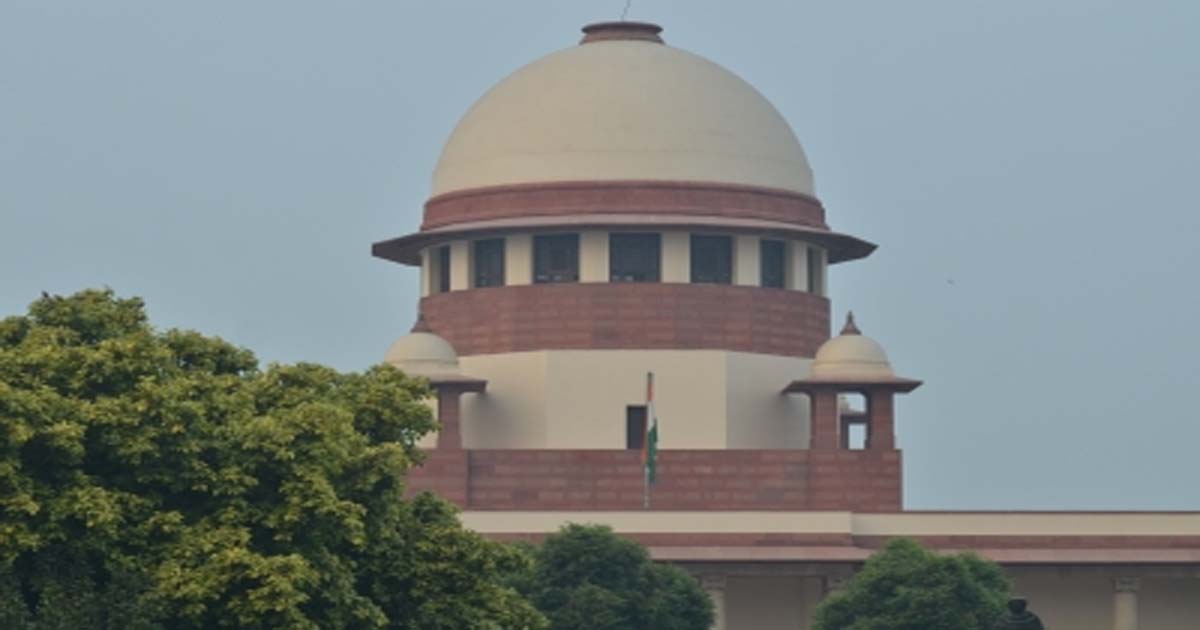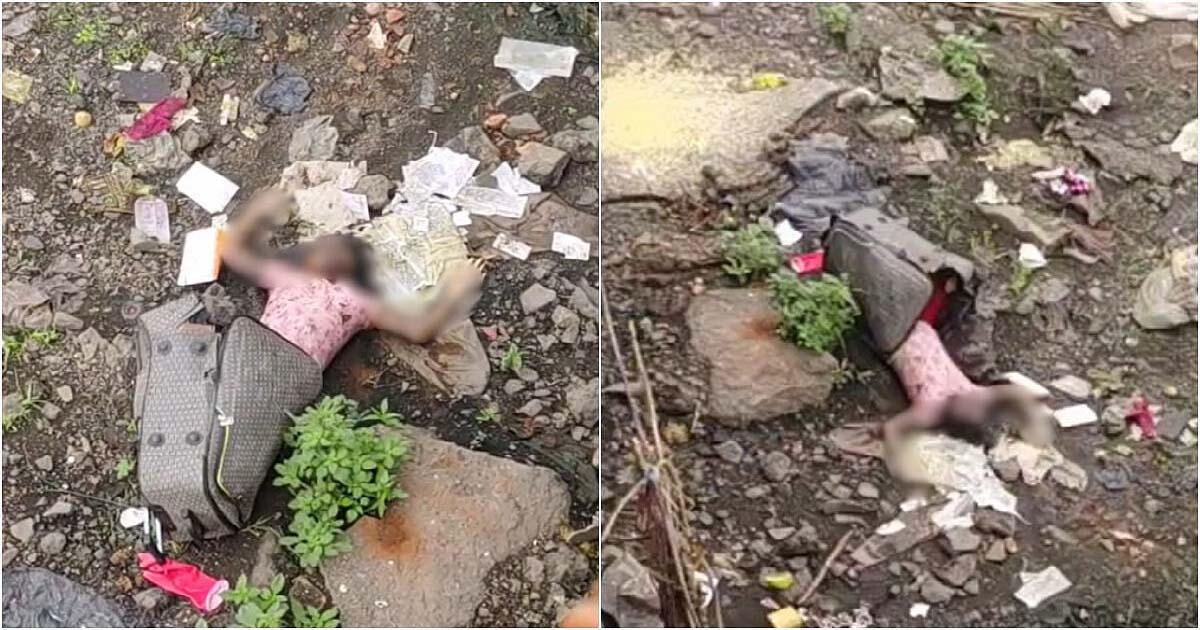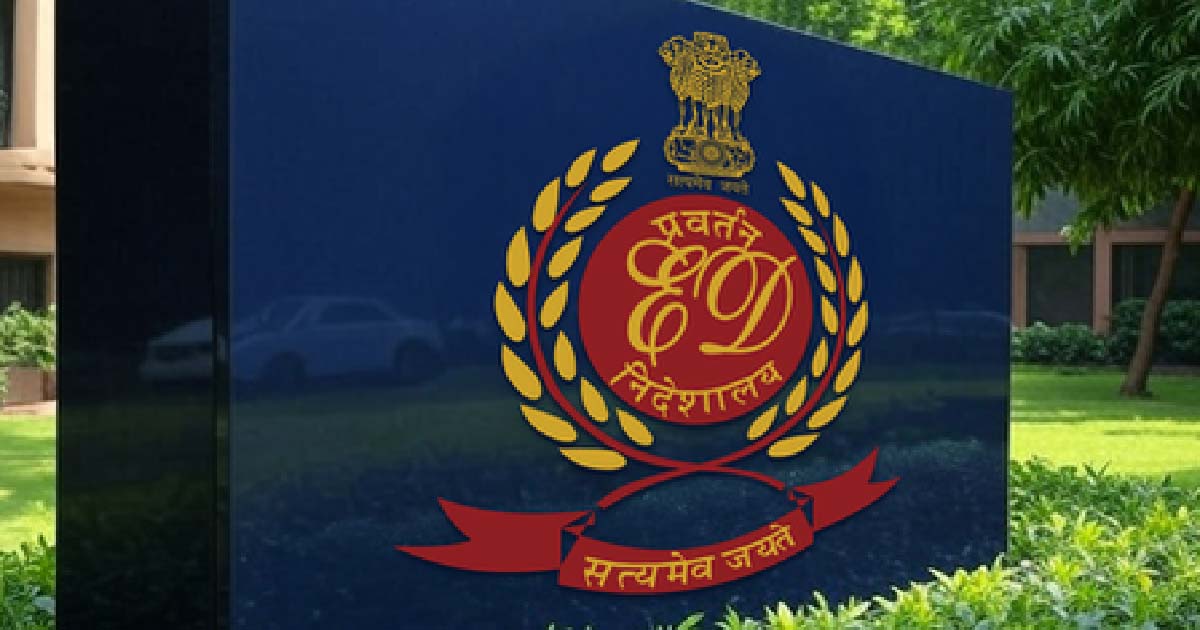Crime
Mere recovery of blood-stained weapon matching deceased’s blood group not sufficient to prove murder: SC

suprim court
New Delhi, June 27: Upholding the acquittal of an accused, the Supreme Court has ruled that mere recovery of a blood-stained weapon bearing the same blood group as that of the deceased would not be sufficient to prove the charge of murder.
A bench of Justices Sandeep Mehta and P.B. Varale was dealing with a criminal appeal filed by the Rajasthan government challenging a judgment of the Rajasthan High Court, which had acquitted the respondent-accused of the offence of murder.
In its impugned order, a division bench set aside the judgment passed by the Additional Sessions Judge in December 2008, which had convicted the respondent for the offence punishable under Section 302 of the Indian Penal Code, 1860 and sentenced him to undergo life imprisonment and pay a fine of Rs 100, and in default of payment of fine, to further undergo 3 months simple imprisonment.
During the trial, the respondent was charged with the murder of Chotu Lal, which took place on the intervening night of March 1 and 2, 2007.
Initially, an FIR was filed against unknown assailants, and at a later stage, the respondent was arraigned in the case on the basis of suspicion and circumstantial evidence.
The prosecution led circumstantial evidence in the form of motive, alleging the respondent was having an evil eye on the wife of the deceased; recovery of the weapon of offence and the FSL report indicating that the blood group on the weapon matched with the blood group of the deceased (B +ve).
Contrary to the findings of the trial court, the Rajasthan High Court opined that the prosecution could not prove the complete chain of circumstances required to bring home the guilt of the accused in the case, which was based entirely on circumstantial evidence, and proceeded to acquit the respondent.
Concurring with the view taken by the Rajasthan HC, the Justice Mehta-led Bench said: “We find that the incriminating circumstances relied upon by the prosecution, i.e., the motive and the recovery of the blood stained weapon, even taken in conjunction cannot constitute the complete chain of incriminating circumstances required to bring home the charges against the accused.”
“The High Court seems to have overlooked the FSL report, which fact was stressed upon by learned counsel for the appellant (state government). However, in our view, even if the FSL report is taken into account, then also, other than the fact that the weapon recovered at the instance of the accused tested positive for the same blood group as that of the deceased (B +ve), nothing much turns on the said report,” it added.
The apex court, relying upon a previous judgment of the apex court, opined that mere recovery of a blood-stained weapon even bearing the same blood group of the victim would not be sufficient to prove the charge of murder.
It discarded the theory of motive, saying the evidence in that regard seems to be very vague and vacillating.
The Justice Mehta-led Bench added that the law is well settled by a catena of apex court decisions that in an appeal against acquittal, interference can only be made if the only possible view based on the evidence points to the guilt of the accused and rules out his innocence.
Dismissing the appeal of the state government, the Supreme Court said: “In the present case, we are duly satisfied that the prosecution failed to lead clinching evidence to bring home the charges. The only possible view is the one taken by the High Court, i.e., the innocence of the accused.”
Crime
Mumbai Shocker: Drunk Audi Driver Arrested For Kidnapping Biker, Seeking Sexual Favours From Abducted Man In Bandra

Mumbai: Mumbai Police have arrested a 31-year-old man for allegedly kidnapping a biker in Bandra and demanding sexual favours, in a late-night incident that has raised serious concerns over public safety. The accused, identified as Chirag Hargunani, was reportedly driving an Audi car under the influence of alcohol when the incident took place.
According to Bandra police, the incident occurred in the early hours of Sunday when Hargunani approached two men travelling on a motorcycle near Bandra on the pretext of seeking directions to a nearby park. The accused, who appeared heavily intoxicated, asked one of them, Mohammad Taabish Shoeb Kutty, to sit inside his Audi and guide him, claiming he was unable to navigate in his drunken state.
Kutty agreed initially, believing he was simply helping a lost motorist. However, once inside the car, the situation took a disturbing turn. Police officials said Hargunani suddenly locked the doors and began driving off, effectively abducting the 26-year-old. During the drive, he allegedly made repeated demands for sexual favours from Kutty.
When Kutty refused and insisted on being let out, Hargunani became aggressive. He allegedly assaulted Kutty inside the moving vehicle, refusing to stop or release him. The victim then acted swiftly to protect himself, managing to reach for and remove the car keys during the struggle, forcing the Audi to halt. Kutty immediately stepped out and sought help, after which locals alerted the police.
A team from Bandra police station reached the spot and took Hargunani into custody. Police have registered a case under relevant sections of the Bharatiya Nyaya Sanhita (BNS) pertaining to kidnapping, wrongful confinement, assault and other offences. Hargunani remains in police custody as the probe continues.
Crime
Thane Shocker: Young Woman’s Body Found Stuffed Inside Suitcase Under Desai Khadi Bridge On Kalyan–Shil Road; Police Launch Murder Probe

Kalyan, Nov 24: A shocking incident has come to light after the body of a young woman was discovered inside a suitcase under the Desai Khadi bridge on the Kalyan–Shil Road on Monday. The gruesome finding has triggered panic and concern throughout the area, as it clearly indicates a cold-blooded murder.
According to police sources, the age of the deceased woman is estimated to be between 25 and 30 years. The body was packed inside a medium-sized suitcase and dumped beneath the bridge, suggesting that the killers deliberately chose a secluded spot to dispose of the evidence.
Prima facie, officers believe the woman was murdered before being stuffed into the suitcase and abandoned. However, the exact cause of death will be known only after the post-mortem examination.
The identity of the victim remains unknown at this stage. The police have begun checking missing women complaints from Kalyan, Dombivli, Navi Mumbai, Thane, Mumbai and surrounding regions.
Forensic experts have been called to examine the suitcase and surrounding area for fingerprints, blood traces, or any other clues that may help identify the perpetrators.
CCTV footage from nearby locations, toll plazas, and road junctions along the Kalyan–Shil corridor is also being collected and analyzed to trace the vehicle or individuals who might have transported the suitcase.
The Dyghar Police have officially launched a murder investigation and formed a special team to trace the identity of the woman and hunt down those responsible. Police have appealed to the public to contact them immediately if they have information about a missing woman matching the victim’s description.
The brutal killing has sent a wave of shock across the city, raising serious concerns about safety. Police say they are treating the case with utmost urgency and are confident of making a breakthrough soon.
Crime
J&K: ED attaches property valued at Rs 1 crore in money laundering case

Jammu, Nov 24: The Jammu Sub-Zonal Office of the Enforcement Directorate (ED) in Jammu and Kashmir said on Monday that the agency has attached immovable property worth Rs 1 crore under the Prevention of Money Laundering Act (PMLA), 2002.
A press statement by the ED said, “The Jammu Sub-Zonal Office of the Enforcement Directorate (ED) has provisionally attached immovable property worth nearly Rs 1 crore under the Prevention of Money Laundering Act (PMLA), 2002.
“The provisionally attached property comprises industrial land at Panipat, Haryana, of M/s Vidit Healthcare Private Ltd., Sirmour, Himachal Pradesh, the ED initiated investigation in respect of case registered by the Jammu NCB against M/s Vidit Healthcare (Managing Partner, Neeraj Bhatia) Niket Kansal and others for illegal diversion of a codeine-based cough syrup (CBCS), “Cocrex”, for misuse as intoxicant/drug, from manufacturer, M/s Vidit Healthcare,” the statement added.
“ED investigation revealed that M/s Vidit Healthcare supplied CBCS to entities viz. M/s S.S. Industries, M/s Kansal Industries, M/s Nouveta Pharma, M/s Kansal Pharmaceuticals and N.K Pharmaceuticals (all operated and controlled by Niket Kansal r/o Delhi) during 2018-24, to the tune of about Rs 16.74 crore. Part of such illegally diverted CBCS was supplied to Raees Ahmed Bhat, a resident of Srinagar, from whom large quantities of CBCS was seized on January 14, 2024 by NCB.”
“ED investigation further revealed that M/s Vidit Healthcare earned gross profit estimated to be nearly Rs 2.92 crore as proceeds of crime from the sale of codeine-based cough syrup (CBCS) to entities operated by Niket Kansal viz. M/s S.S. Industries, M/s Kansal Industries, M/s Nouveta Pharma, M/s Kansal Pharmaceuticals and N.K Pharmaceuticals. Earlier in this case, ED has conducted search at the premises of Neeraj Bhatia and Niket Kansal on February 13, 2025, resulting in seizure of cash amounting to Rs 32 lakh and jewellery valued at Rs 1.61 crore from the residential premises of Neeraj Bhatia and in furtherance of investigations, ED has further attached immovable property in the form of land at Panipat of M/s Vidit Healthcare, worth nearly Rs one crore.”
“Further investigation is underway,” the statement said.
-

 Crime3 years ago
Crime3 years agoClass 10 student jumps to death in Jaipur
-

 Maharashtra1 year ago
Maharashtra1 year agoMumbai Local Train Update: Central Railway’s New Timetable Comes Into Effect; Check Full List Of Revised Timings & Stations
-

 Maharashtra1 year ago
Maharashtra1 year agoMumbai To Go Toll-Free Tonight! Maharashtra Govt Announces Complete Toll Waiver For Light Motor Vehicles At All 5 Entry Points Of City
-

 Maharashtra1 year ago
Maharashtra1 year agoFalse photo of Imtiaz Jaleel’s rally, exposing the fooling conspiracy
-

 National News1 year ago
National News1 year agoMinistry of Railways rolls out Special Drive 4.0 with focus on digitisation, cleanliness, inclusiveness and grievance redressal
-

 Maharashtra1 year ago
Maharashtra1 year agoMaharashtra Elections 2024: Mumbai Metro & BEST Services Extended Till Midnight On Voting Day
-

 National News1 year ago
National News1 year agoJ&K: 4 Jawans Killed, 28 Injured After Bus Carrying BSF Personnel For Poll Duty Falls Into Gorge In Budgam; Terrifying Visuals Surface
-

 Crime1 year ago
Crime1 year agoBaba Siddique Murder: Mumbai Police Unable To Get Lawrence Bishnoi Custody Due To Home Ministry Order, Says Report












